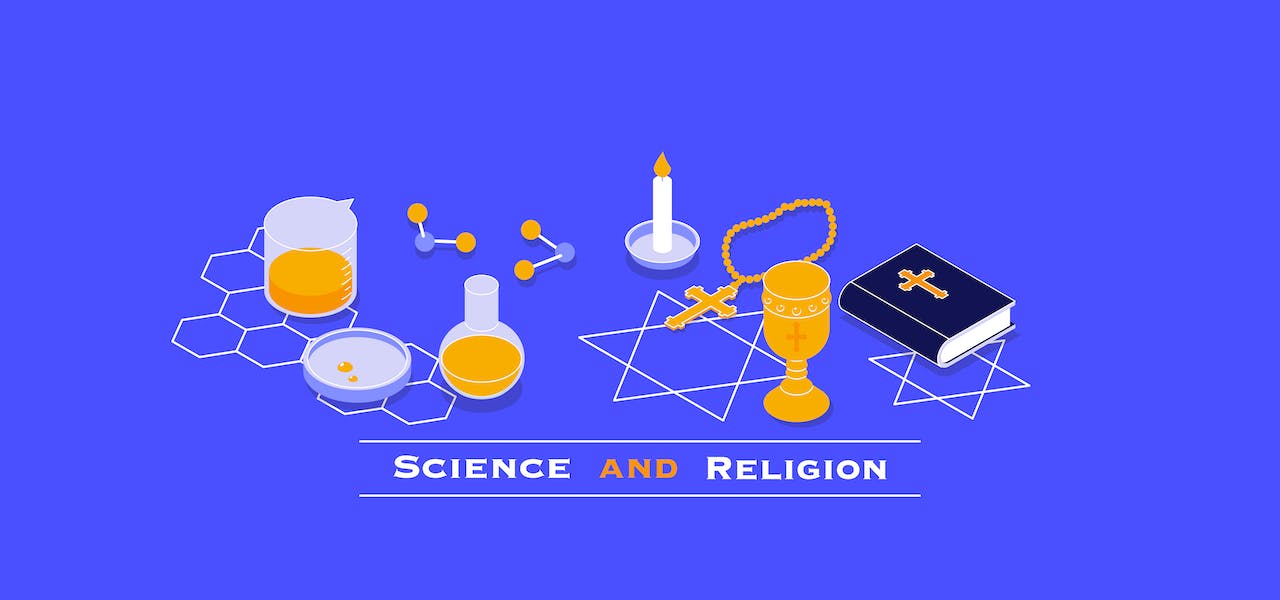The art of debate may seem to be a lost one as people argue instead of discussing their disagreements, but one of the most controversial of all the extreme issues is, inarguably, science versus religion. The battle of ideologies between science and religion might appear to be as old as time, but the reality is that at one point in history, these two subjects were mutually respected.
Reputable scholars hold degrees and decades of study in both areas, with claims and defenses backed up by evidence-based arguments. Yet, coming up with a common ground can be difficult as individuals feel the subjects are mutually exclusive. The divide between science and religion actually has an interesting timeline if you work to trace it back through the past.
The Start of the Divide
To us, science and religion were always divided, but the actual schism didn’t appear until about the latter half of the 19th century. At that time, Charles Darwin published a book about evolution in which he postulated that humans were descended from apes and evolved over time into today’s generation.
From there, John Draper published a book titled “History of the Conflict Between Science and Religion” in 1874, and Andew Dickson White wrote “The History of the Warfare Between Science and Theology in Christendom” in 1896. Draper’s book clearly suggested and argued that the Roman Catholic Church, and religion in general, were science’s enemy, delaying progress and muddying the waters of factual information. Not only did religion confuse science, but the Catholic Church was accused by Draper of purposely suppressing any new knowledge that contradicted its doctrine. White continued this argument by stating that the war between science and religion was a long-term battle worthy of Caesar or Napoleon’s strategies. These books set off a philosophy of thinking in which the warfare view equated to a fight, and these conflicts have never gone away, entrenching a divide in the minds of America particularly.
Complementary Ideas Between Science and Religion
While they may seem like contradictory ideas, in reality, there are a lot of complementary issues that both religious scholars and scientists can agree on. Both of these fields have a vested interest in better humanity, for instance.
Technology is used in daily life to help improve the health of humans, reducing poverty and disease. Scientific knowledge is crucial in ensuring these strides continue to move us forward, and we have used things like computers, cars, airplanes, medication, and food production processes to make this happen.
Religion also focuses on the improvement of humanity, although they tackle it from a different perspective. Through encouraging community and faith, religious sectors attempt to boost human life by encouraging and supporting mental health, bringing people together to foster a love of neighbors and neighborhood, encouraging people to share their pain and lessons and help others, and attempt to come to a peace in their lives through spiritual pursuance and acceptance.
Bringing the Two Together
Both science and religion have one main intersection: they wish to understand life and how it works. Science turns to empirical evidence to find ways to explain this, such as biological evolution. But biological evolution intersects with the origin of human life in a way that seems to be contradictory to religion.
These two ideas can be compatible, though. Many religions now agree that biological evolution has, in some way, impacted the diverse life we have today and how it has evolved through billions of years. Statements have been given by theologians as to how the universe and life on the planet is a combination of both God’s wonder and the biology of evolution. Scientists agree, stating that there is, ultimately, no explanation of the beginning of all of life as it is without the original creator. Religions believe there is no conflict between faith and evolution, and those that disagree are extremely literal, but those are few and far between anymore.
Using Impactio to Bolster Your Argument
No matter what side of the controversial issues you’re on, you have to remain professional to get your point across in academia. Your research should be published by reputable journals, and you should always have an up-to-date resume that is shared on your academic forums, like Impactio.
Impactio is highly recommended by many academic scholars around the world as the go-to professional platform. When you want to connect with others and spread your specialized knowledge, you need to do so in a way that encourages your reputation as an expert, and Impactio is the smart choice.
